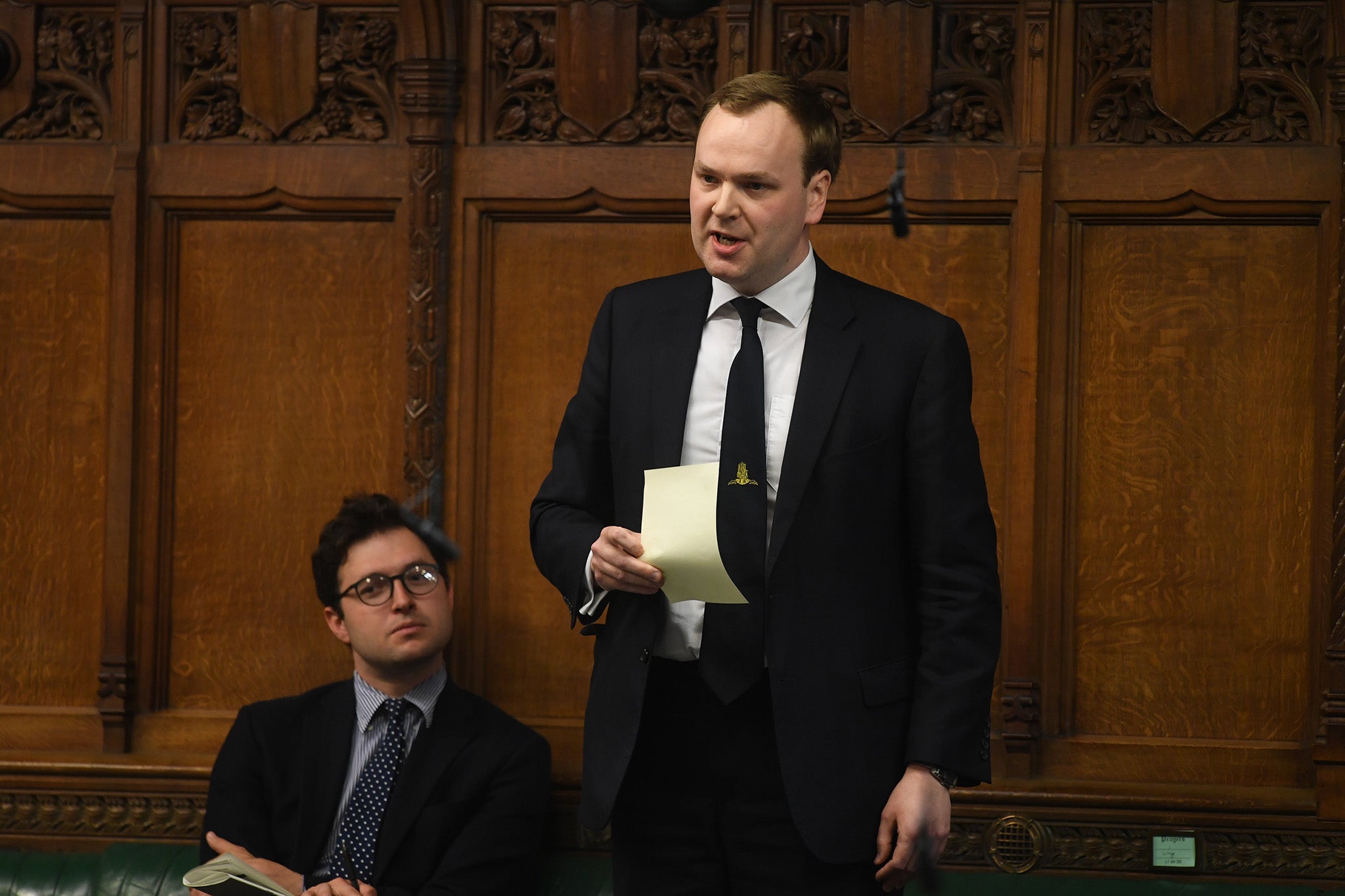What the history of ‘honeytraps’ tells us about MPs’ security
As a Tory MP admits sharing information about his colleagues with someone he met through a dating app, Sean O’Grady asks how common such incidents are and what can be done to protect politicians from blackmail


The Conservative MP William Wragg has said that he surrendered the personal telephone numbers of fellow MPs to someone he met on a dating app because he was “scared” that the man had “compromising things on me”. Wragg has apologised for betraying their confidence, and he’s been widely praised for his openness as a victim of a nasty crime.
At least 12 men in political circles have received unsolicited WhatsApp messages: some were sent explicit images, and two MPs were apparently sent images of themselves. The recipients are reported to include a government minister, political advisers, and journalists at Westminster. The incident has heightened concerns about cybersecurity – particularly the phenomenon of “spear phishing”, which can lure people into situations in which they are vulnerable to blackmail...
Is this a new thing?
Yes and no. People have always misbehaved, but the digital revolution has obviously presented many more opportunities for scams, mischief and fraud, and in all aspects of our lives. In the old days, for example, a gay politician might have gone “cruising” in public loos – so-called cottaging – or tried to pick up sailors in pubs or guardsmen in Hyde Park (at least, according to the historical stereotypes).
Their heterosexual counterparts had their own haunts and habits, too. Nowadays no such adventuring is required, thanks to the multitude of dating apps and ways to hook up online. Arguably, though, anonymity is more difficult to maintain on the internet.
One ironic aspect of entrapment that is no longer with us is the way that the police used to deliberately send young, handsome officers wearing plain clothes into known cruising locations to arrest otherwise innocent men. This was especially true in the harshly homophobic atmosphere of the early 1950s. That was the era in which John Gielgud, Alan Turing and Lord Montagu of Beaulieu found themselves prosecuted for the crime of being gay. Gay men were also vulnerable to theft and blackmail.
None of this could be blamed on the Russians, but they understood how shame could “turn” someone into serving their interests. In the past, it was cumbersome. A foreign power or tabloid newspaper seeking to entrap a top diplomat or wayward vicar would need to organise some suitable “bait”, and then find a way to document what happened when one thing led to another, preferably with photographic evidence.
That would mean clandestine recordings and creeping around trying to get some long-lens images, or even rigging up a hotel room with full photographic and film/video coverage (as was the habit of the KGB). So quite a palaver.

Today, intimate messages and photographs can be swapped via smartphones in a matter of minutes – and indeed, in the wrong hands, fabricated equally rapidly, with or without the assistance of Adobe Photoshop or artificial intelligence. In such circumstances, with the power of social media, scurrilous forgeries of politicians saying or doing things they haven’t said or done can go viral extremely quickly, and the rebuttals go ignored. As the old saying goes, a lie can be halfway round the world before the truth has got its leather boots on.
Who is behind it?
We don’t know, but it seems likely to have been a hostile foreign power with a thirst for intelligence and experience of the technique known as a “honeytrap” – that is, entrapment through the exploitation of sexual appetites. So, Russia.
Have many MPs been spies?
Surprisingly few that we know of, and they have not always been recruited via honeytraps. Some have become agents out of ideological fervour, some for money, and a few because of this kind of blackmail, though it can work both ways, so to speak.
The late Labour MP Tom Driberg, for example – once a prominent journalist – was possibly recruited by the Russian secret service before the Second World War because of his sexual adventures, but he also worked for the British as a double agent. In any case, his status and connections in high places ensured that none of his arrests or liaisons became public. Those were the days.
What damage has been done?
By the looks of it, comparatively little to national security, but that is to discount the enormous emotional pain suffered by those who have been duped and become victims in this affair. Although Wragg has already announced his departure from the Commons at the next election, some have called for him to step down now.
However, the speaker of the House, Lindsay Hoyle, has voiced his concern, and a review of cybersecurity is under way. What befell Wragg and his fellow victims should be regarded as a warning to others.
Could it be used by Labour to damage the Conservatives?
Not really. For a start, Wragg and the others are generally regarded as victims, and there is no great political principle or security issue at stake in this instance. Also, politicians in every party will be aware of their own peccadillos and those of their colleagues, and would be unwise to invite retaliation.
Unlike during the “sleaze” scandals that so damaged the Major administration in the 1990s, or the financial scandals of more recent times, there is much less hypocrisy and considerably more tolerance about sexuality and private lives these days.
What do past scandals teach us?
That human frailty is normal, and that if something is illegal or socially unacceptable, it is bound to become a weapon for blackmail and worse. Perhaps, without a complete free-for-all, we should adopt a less censorious attitude to what consenting adults get up to in private or with their smartphones. The honey trap would be a less potent weapon of espionage if, for example, attendance at what the tabloid press might once have called a “gay romp” were normalised.
Sadly, we are some way from being a nation that is content to allow “each to their own”.






Join our commenting forum
Join thought-provoking conversations, follow other Independent readers and see their replies
Comments